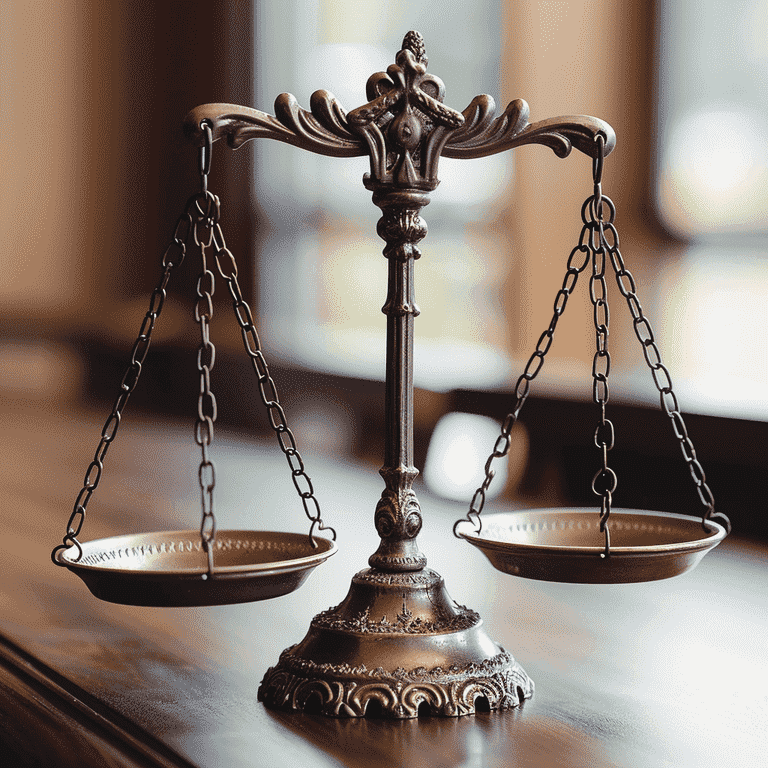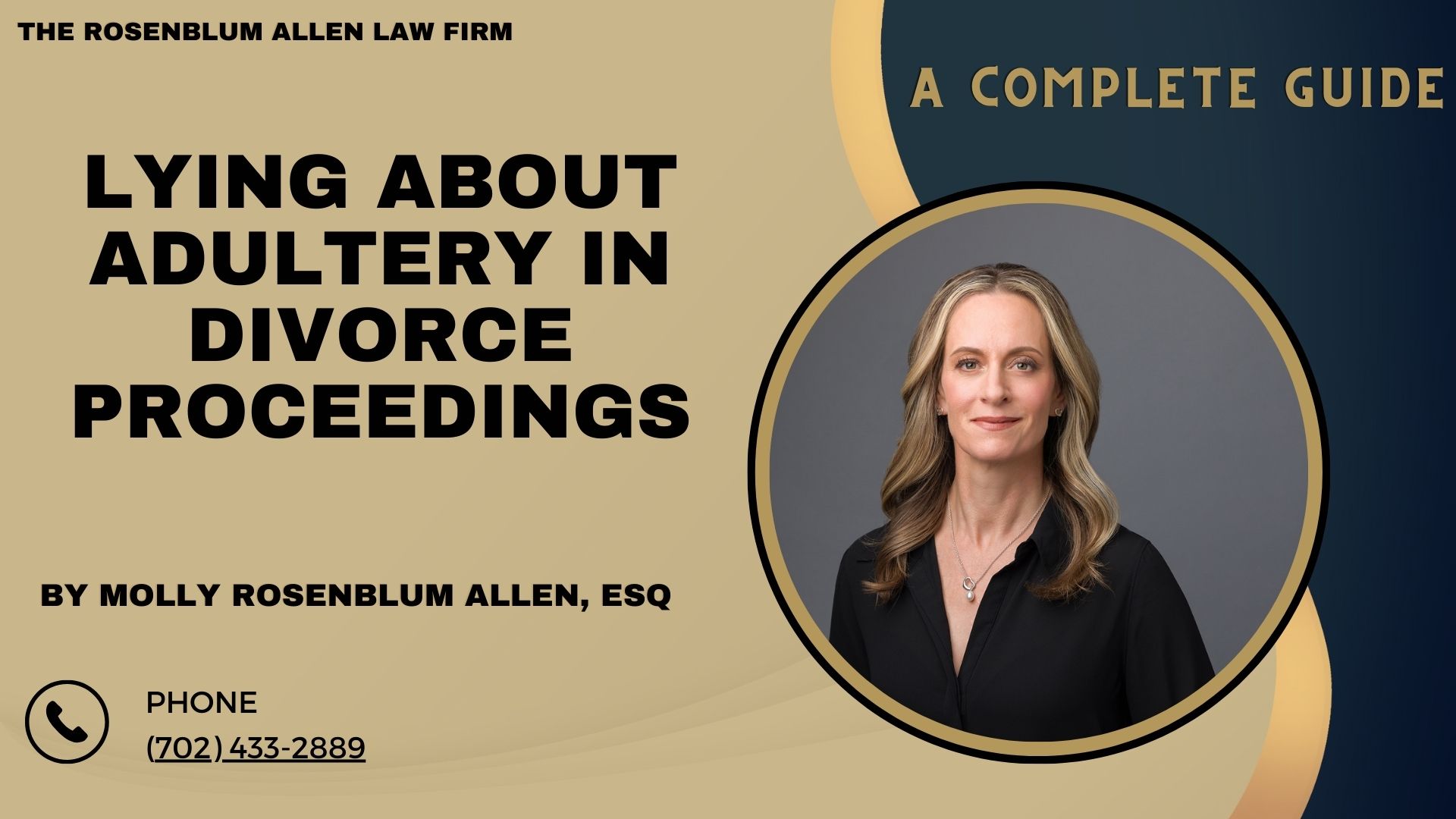Divorce proceedings are emotional. Accusations of adultery complicate matters. Understanding the consequences of lying about adultery is essential for navigating the legal system.
Understanding Adultery Accusations in Divorce
Definition of Adultery in Legal Context
Adultery in divorce law occurs when a spouse cheats with someone else. The marriage must still be intact. Understanding this legal definition is crucial. It helps grasp the seriousness of accusations and their impact on divorce proceedings.
Importance of Adultery Allegations in Divorce
Accusations of adultery can significantly influence the outcome of divorce cases. Here’s why:
Asset Division: Adultery accusations may affect how assets are divided between spouses.
Child Custody: The court may consider adultery allegations when determining child custody arrangements.
Alimony: Adultery can impact the amount and duration of alimony payments awarded to either party.
Understanding these implications is crucial for individuals accused or handling a spouse’s infidelity.

Legal Ramifications of Lying About Adultery
Perjury and Its Consequences
Lying under oath about adultery, known as perjury, carries severe consequences. It’s like walking a tightrope over a pit of legal trouble. If caught, consequences may include:
Criminal Charges: Perjury is a criminal offense punishable by fines, probation, or even imprisonment.
Impact on Divorce Case: False testimony can damage your credibility in court, affecting the outcome of the divorce proceedings.
Adverse Impact on Credibility
Your credibility is your armor in court. Lying about adultery can pierce that armor, leaving you vulnerable. Consider these consequences:
Loss of Trust: Once credibility is compromised, it’s challenging to regain trust in court and personal relationships.
Affects Future Proceedings: Your integrity in this case can impact future legal matters, including child custody battles or disputes over asset division.
Individuals can make informed decisions when facing adultery accusations by understanding the consequences.

Proving Adultery in Divorce Cases
Burden of Proof
Proving adultery in court is a complex task. The burden of proof lies on the accuser, and it’s weighty. Here’s what’s required:
Clear and Convincing Evidence: Accusers must present compelling evidence that demonstrates the occurrence of adultery.
Standard of Proof: Courts require a higher standard of proof for adultery accusations compared to other grounds for divorce.
Evidence of Adultery
In the legal arena, the evidence speaks volumes. To prove adultery, consider gathering:
Photographic Evidence: Pictures can provide undeniable proof of infidelity.
Witness Testimony: Testimony from witnesses who observed the adulterous behavior firsthand can be compelling.
Electronic Communication: Text messages, emails, or social media interactions may indicate an extramarital affair.
People who know about adultery evidence can gather evidence or defend against false accusations.

Defending Against False Accusations of Adultery
Legal Strategies
When falsely accused of adultery, it’s essential to mount a robust defense. Here are some legal strategies to consider:
Gather Evidence: Collect evidence that disproves the accusations, such as alibis, receipts, or witness statements.
Consult an Attorney: Seek guidance from a skilled divorce attorney who can assess your case and devise a strategic defense plan.
Stay Calm and Focused: Emotions may run high, but maintaining composure and focusing on the facts is crucial during legal proceedings.
Protecting Reputation
False accusations can harm your reputation. You can take steps to lessen the damage.
Maintain Integrity: Act honestly throughout the proceedings, demonstrating your commitment to the truth.
Seek Support: Lean on friends, family, or support groups for emotional support during this challenging time.
Focus on Your Well-Being: Prioritize self-care and mental health to navigate the stress and uncertainty of false accusations.
Individuals can defend against false accusations of adultery and protect their reputation during divorce.

Seeking Legal Assistance
Importance of Legal Representation
Navigating divorce proceedings, especially when accusations are involved, can be daunting. Here’s why hiring a divorce attorney is essential:
Expertise in Family Law: Experienced attorneys understand the complexities of divorce law and can provide effective guidance tailored to your case.
Advocacy and Support: An attorney will advocate for your rights and best interests, ensuring you receive fair treatment throughout the process.
Legal Strategy: Attorneys can devise a strategic legal approach, whether you’re defending against accusations or pursuing a favorable outcome.
Consultation Process
The initial consultation with a divorce attorney sets your legal journey. Here’s what to expect:
Case Evaluation: The attorney will review your case details, including any accusations of adultery, to assess its strengths and weaknesses.
Discussion of Options: You’ll discuss potential legal strategies and outcomes based on the specifics of your situation.
Client-Attorney Relationship: Building rapport and trust with your attorney is crucial for effective communication and representation.
Seek legal help early to understand legal rights and navigate divorce confidently.

Breaking It All Down
Accusations of adultery in divorce are challenging. Knowledge and guidance help individuals protect their rights. They can navigate the process effectively.
Accusations of adultery can heavily affect asset division. They can also impact child custody and alimony payments. Understanding the legal consequences of lying about adultery is crucial. It can lead to perjury charges and harm credibility in court.
Proving adultery in divorce cases requires clear evidence. Individuals must meet this burden. Evidence such as photographs, witness testimony, and electronic communication can strengthen one’s case.
When accused of adultery, defend yourself to protect your reputation. Legal strategies, like evidence collection and attorney advice, aid individuals in navigating challenges.
Seek legal help early to understand your rights and options. An experienced divorce attorney helps individuals achieve a fair divorce outcome. The attorney provides advocacy and necessary support. Remember, honesty, integrity, and self-care are essential throughout this journey.

Frequently Asked Questions
What are the potential legal consequences of lying about adultery in divorce proceedings?
Lying about adultery can lead to perjury charges. This may result in fines, probation, or imprisonment. It can damage credibility in court. This can impact the divorce case outcome.
How can I defend myself against false accusations of adultery?
Gather evidence to disprove accusations. Consult a skilled attorney. Maintain honesty and integrity.
What evidence is needed to prove adultery in a divorce case?
Proving adultery needs clear evidence like photos, witness accounts, or electronic messages.
How does an adultery accusation impact asset division, child custody, and alimony?
Accusations of adultery can influence asset division, child custody arrangements, and alimony payments. Courts may consider adultery allegations when making these decisions.
What should I expect during the initial consultation with a divorce attorney?
The attorney will evaluate your case during the consultation. They will discuss legal strategies. They will talk about potential outcomes. They will establish a client-attorney relationship based on trust and communication.
How can I protect my reputation during divorce proceedings involving accusations of adultery?
Protect your reputation by being honest, seeking support, and prioritizing self-care.

Additional Resources for You
Don’t forget to explore these additional resources created by our lead attorney, Molly Rosenblum Allen, Esq., to assist you during your time of need:
Las Vegas Family Law Attorneys: Comprehensive legal support for various family law matters.
Family Court Las Vegas: Guidance and insights into navigating family court proceedings in Las Vegas.
Common Law Marriage in Nevada: Information on common law marriage laws in Nevada.
Name Change Las Vegas: Assistance with legal name changes in Las Vegas.
Nevada Power of Attorney: Legal services related to establishing power of attorney in Nevada.
How to File a Motion in Family Court: Step-by-step guidance on filing motions in family court proceedings.
Family Court Mediation: Information and resources for family court mediation services.
Unbundled Attorney: Flexible legal services tailored to your specific needs.
Nevada Adoption: Assistance with the adoption process in Nevada.

Outside Resources for You
American Bar Association (ABA): Offers information and resources on various legal topics, including divorce and family law.
FindLaw: Provides legal information, articles, and resources related to divorce, child custody, and other family law matters.
LegalZoom: Offers online legal services, including assistance with divorce forms and documents.
Divorce Magazine: Provides articles, guides, and resources for individuals going through divorce.
Women’s Law: Offers legal information and resources specifically tailored to women’s legal rights, including divorce and family law matters.
National Association of Divorce Professionals (NADP): Provides resources and networking opportunities for professionals in the divorce industry, including attorneys and mediators.
American Academy of Matrimonial Lawyers (AAML): Offers resources and information on matrimonial law, including divorce proceedings and family law issues.

A Special Message from Our Lead Attorney, Molly Rosenblum Allen, Esq

Dear Reader,
Thank you for taking the time to explore the resources we’ve provided. Legal matters may seem daunting, but proper guidance makes them manageable.
If you’re ready to take the next step in addressing your situation, please contact me and my team at (702) 433-2889. We’re here to offer our expertise and support as you move forward.
Best regards,
Molly Rosenblum Allen, Esq.





